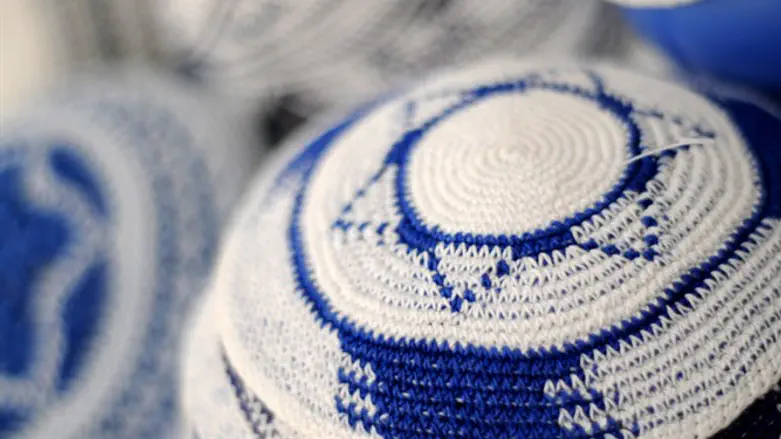
In the heart of the Gaza Strip's Shati refugee camp, machines buzz as Mohammed Abu Shanab's
employees sew small, round pieces of cloth: Jewish kippot for export to Israel.
It may seem an unlikely product to be made in the Palestinian Authority enclave run
by the Hamas terror movement, but with unemployment rampant, some in Gaza will take any business they can get.
"The Israelis appreciate our products for their quality and our proximity to their market," Abu Shanab said.
"On the other hand, they fear the crossings will be closed and the delivery of goods will be delayed."
Israel controls all crossings into and out of the Gaza Strip, apart from one bordering Egypt. One terminal on the Israeli border -- Kerem Shalom – is designated for goods.
With about a dozen sewing machines, Abu Shanab's small textile factory, located near the home of Hamas's former leader in Gaza Ismail Haniya, produces other products such as shirts and trousers as well.
Business, not politics
Hassan Shehadeh, who employs some 50 workers in a textile factory, says he exports between 5,000 and 10,000 pairs of pants to Israel each month.
"The local market is weak, while trade with Israel is very good," he said.
For Abdel Nasser Awad, director general in the Gaza economy ministry, exporting to Israel is "a purely commercial affair".
"All that we are interested in is boosting our economy and fighting unemployment," he said.
Shehadeh puts it much more bluntly.
"Politics and business are not the same thing," he said. "You can be an enemy in politics, but not in business." The late President of Israel, Shimon Peres, prophesied that economic ties would lead to peace and even a "New Middle East." In Gaza, that seems not to be the case.